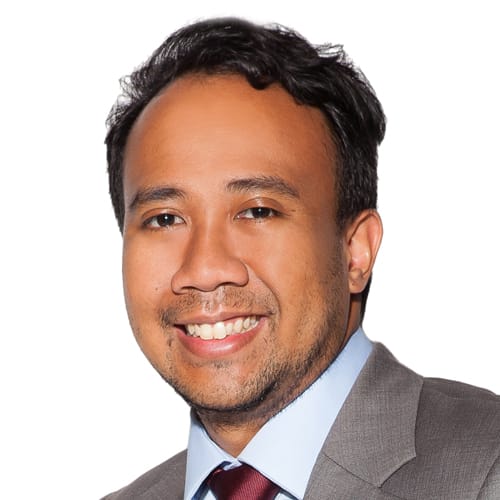Traffic Police officer on chasing speed demons and why rushing to the toilet isn't an excuse
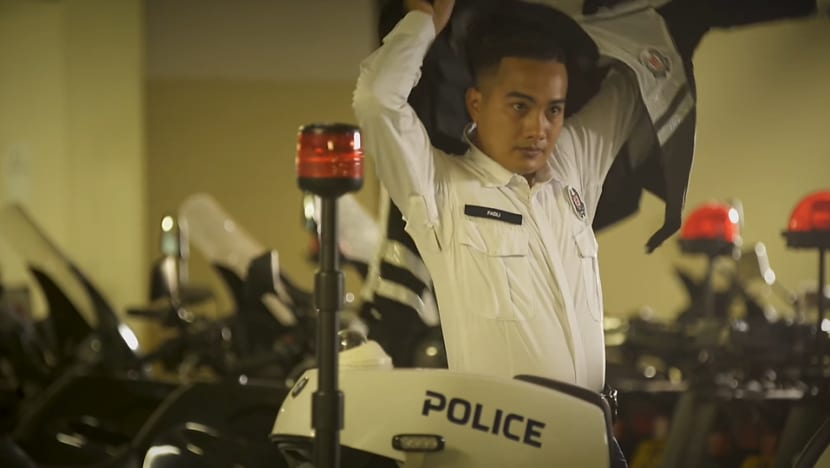
Traffic Police patrol officer Station Inspector (SI) Fadli Shaifuddin putting on his bike jacket. (Video screengrab: Facebook/Use Your RoadSense)
SINGAPORE: In the movies, high-speed police chases are often thrilling and sometimes explosive, but on the streets of Singapore it is a different story.
Traffic Police (TP) officers here must assess the potential danger to other road users before starting a high-speed pursuit, and consider factors like traffic conditions and the recklessness of the offending vehicle.
TP patrol officer Station Inspector (SI) Fadli Shaifuddin, 33, remembers seeing one motorcycle zoom past on an expressway, his speed gun showing the bike travelling at roughly more than 150km/h, or at least 60km/h above the speed limit.
SI Fadli hopped on his own bike, twisted the throttle and started to give chase. Officers in these situations usually try to stop the speeding motorist and directly issue a notice of offence.
But SI Fadli quickly decided to abandon the chase.
"We cannot put my life, the driver's life and other road users' lives in danger just because we want to get the driver," he told reporters on Thursday (Jun 24).
"You have to think that while chasing the driver, there are other road users still using the road on our left and right. So, if it's too dangerous for us and other road users, we will just summons accordingly."
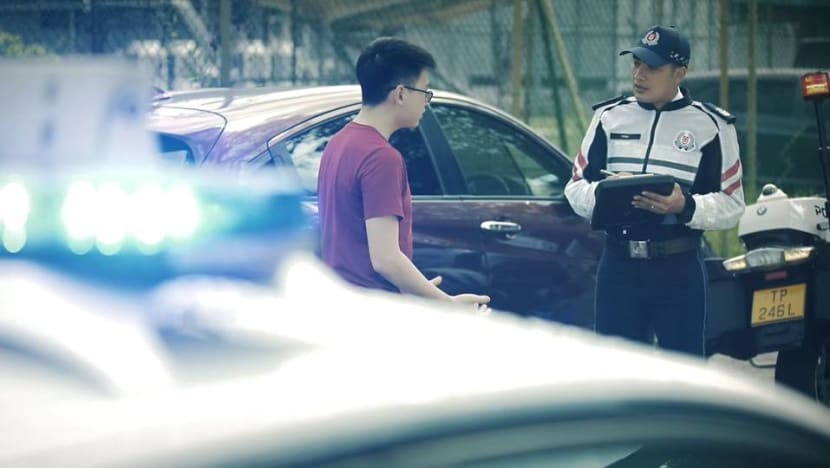
SI Fadli was speaking to the media as part of the TP's new online campaign aimed at educating road users to be safer and more responsible.
According to TP's annual statistics, there were 758 speeding-related accidents in 2020, a slight increase from 735 cases the previous year.
Going back to the high-speed chase, SI Fadli said he made the "split second" decision to stop the pursuit based on the moderate afternoon traffic at the time and the likelihood that the rider would try to escape.
"(I assessed this) by the way the rider was riding the bike, how he manoeuvered from lane to lane," he said.
"The more I pursued the bike, the more the bike would tend to feel my presence and start to endanger other road users."
READ: Fewer accidents on Singapore roads last year; disproportionate number involve motorcyclists, elderly
SI Fadli made sure he took note of the bike's licence plate number, its model and colour as well as the rider's helmet. TP motorcycles are also mounted with cameras to record these details.
"When there is a dispute, we can show that we have all this evidence," he said.
The owner of the speeding bike eventually received a letter to disclose the offending rider's particulars. The rider was then fined for speeding.
Nevertheless, SI Fadli said officers will conduct high-speed pursuits when the subject is a threat to public safety and there is an "immediate need" to stop the subject.
Even then, he said officers always strive to be careful and practise defensive riding during patrol duties. Officers also go through a course to gain the necessary knowledge and competency to perform these duties.
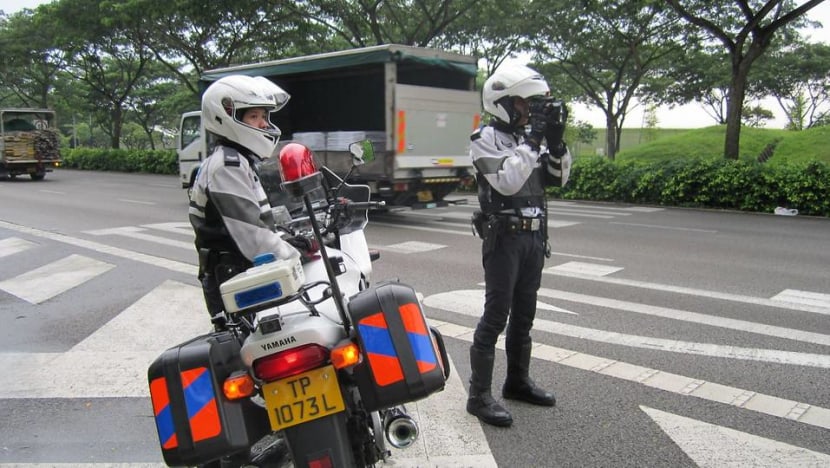
During his nine years as a patrol officer, SI Fadli has stopped numerous motorists for speeding. Some would initially deny they were speeding, he said, and when shown proof of their speed, they would start to give excuses.
"They will say, 'Sorry, sir. I'm rushing for some urgent appointment' or 'I need to go the restroom urgently','" he said.
"You cannot think that because (you) need to go to this appointment urgently and (you're) late, (you) just need to speed. You did not think of (the safety of others) who are sharing the road with you."
READ: 'The biggest challenge ... is to relay bad news': How the Traffic Police investigates fatal accidents
SI Fadli has also responded to a number of speeding-related accidents throughout his career, with common tell-tale signs including extensive damage to the vehicles or severe injuries to those involved.
"For us, every life matters on the road," he said.
DRINK-DRIVING AND EVADING ROADBLOCKS
Besides speeding-related accidents, fatal drink-driving accidents are also on the rise. There were 13 cases last year, up from seven in 2019.
SI Fadli said the TP conducts enforcement against drink-driving through roadblocks or patrols. Officers look out for cars that drift in and out of their lanes, and drivers who look flushed or have slurred speech.
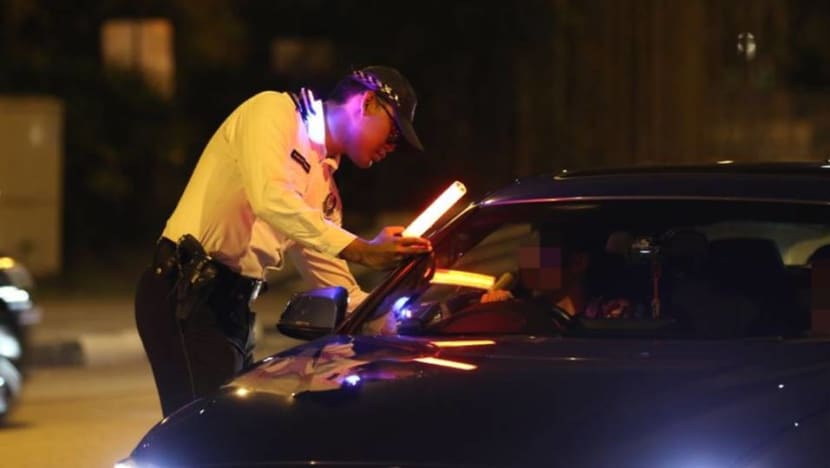
"Normally when we stop and interview the drivers (who drink and drive), they will not want to have eye contact with you," he said.
"Because if you are doing something wrong, you will not want to have eye contact with the Traffic Police."
Some drivers, upon failing the breathalyser test, might still try to say they only drank a cup and can still control the vehicle.
"But then, if the result is a fail, we have to arrest the driver for suspected drink-driving," SI Fadli added.
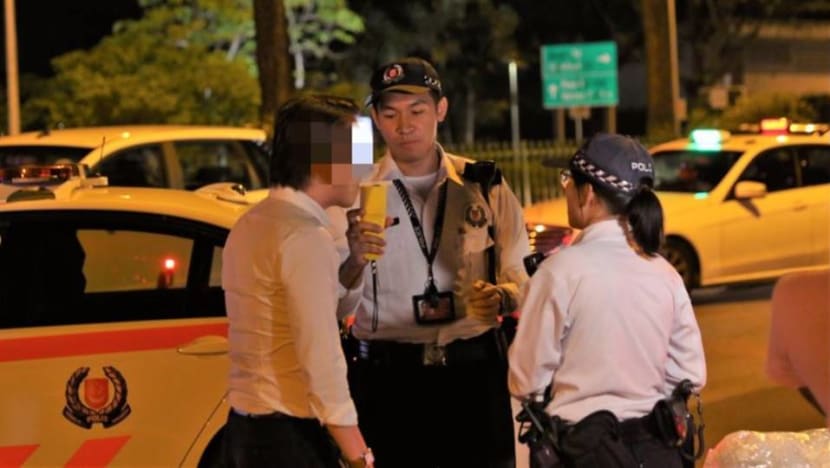
Some drivers who have alcohol in their system also try to evade roadblocks and SI Fadli personally witnessed one repeat drink-driving offender try to turn off before a roadblock.
There was no need for an extended pursuit as officers were on hand to quickly stop the car.
"They will try to escape through the minor roads, but our dedicated pursuit team at the roadblock will be on standby to catch all these drivers," SI Fadli said.
"When they go inside the small roads, there is no escape. We as police officers are trained to catch them as fast as possible before any evidence is thrown away."
USING MOBILE PHONE WHILE DRIVING
Beyond speeding and drink-driving, SI Fadli said the worst thing a motorist can do is using a mobile phone while driving.
"It can endanger other people's lives because you can be distracted with your handphone and maybe your hand is off the steering wheel," he said.
"That's where your car starts to stray left and right, and it can be a danger to drivers on your left and right."
READ: Higher fines for motorists, pedestrians and cyclists from April: MHA
When asked how he would respond to drivers who said they were good at multi-tasking, SI Fadli said these drivers were "too complacent".
"You just need one time (for an accident) to happen, and that's where they learn," he said.
"But as a traffic officer, we do not want that to happen. We want to educate them before bad things happen to other road users."
WATCH: Stronger deterrence needed for changing traffic landscape: Traffic Police
SI Fadli particularly remembers one incident when he stopped a driver for using a mobile phone while driving.
Instead of giving excuses, SI Fadli was "surprised" that the driver admitted to the offence and thanked him for issuing him with a summons.
READ: Commentary: The growing trend of distracted driving
"Because he believed that what he was doing at that point in time was very dangerous to other road users," he said.
"I believe that if I can change someone's behaviour on the road, I believe that this driver will be sharing the experience with his friends and family members."
ROAD SAFETY EDUCATION
Indeed, SI Fadli's decision to join the TP was spurred by a desire to spread the word on road safety.
In 2009, he was riding his own bike when a car switched lanes without signalling. SI Fadli crashed into the car and broke a bone in his leg. He had to stay in the hospital for two nights.
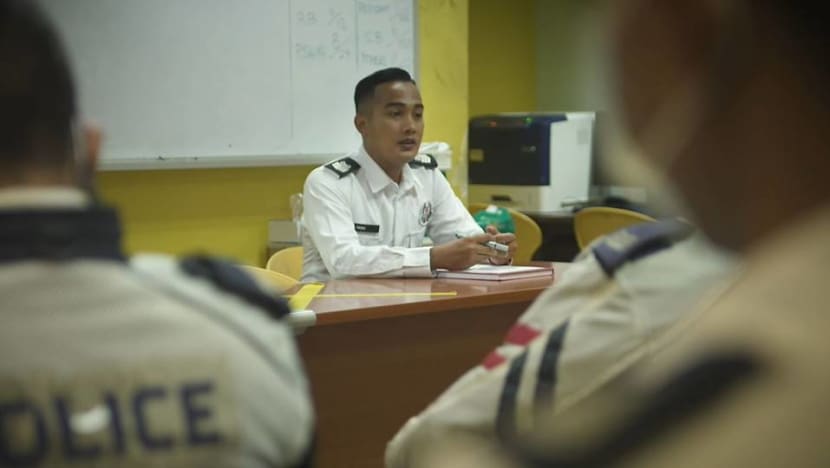
"From then, I told myself I needed to educate other motorists," he said.
"I joined the Traffic Police and I got to know that the job scope was not just about enforcement and summonsing drivers, but it was about educating also on road safety for all road users."
SI Fadli said his job in the TP has made him a "gracious rider" who looks out for other road users, even while riding his personal bike.
"I tell my family members and friends that it's okay to be late, rather than sorry. Your loved ones are waiting for you at home and they are expecting you to come back in one piece," he said.









